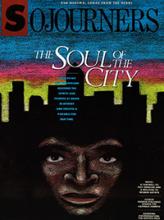As you might recall, in the late 1970s and early '80s, a broad international coalition of church, health-care, and community groups waged a 7-year-long campaign against Nestle S.A., the Swiss-based transnational food products giant. That boycott was aimed at stopping Nestle's promotion of infant formula in the Third World.
The boycotters' case was simple and morally irrefutable. Throughout the Third World, Nestle, and other formula manufacturers, were handing out free formula samples to new mothers. This practice, along with other high-pressure sales techniques, was intended to persuade mothers to replace their own safe and healthy breast milk with the more expensive, complicated option of bottle feeding.
The problems came when the free samples dried up. By then the mothers' milk had, too. Then the formula was often improperly prepared by parents who couldn't read the instructions, or over-diluted to stretch the supply, or mixed with unsanitary water. The result was malnutrition, diarrhea, and death as thousands of infants gave their lives for an international marketing strategy.
The Nestle boycott ended in 1984 when the company agreed to all of the boycotters' demands. It seemed that a persistent David had conquered the chocolate Goliath. But now the Nestle boycott is back. A year ago this month some of the same organizers who announced the victory in 1984 held another press conference to announce that Nestle has broken its promises. Specifically, the boycott organization has documented the fact that Nestle continues to donate wholesale quantities of free formula to hospitals and maternity clinics for distribution to new mothers.
Read the Full Article

